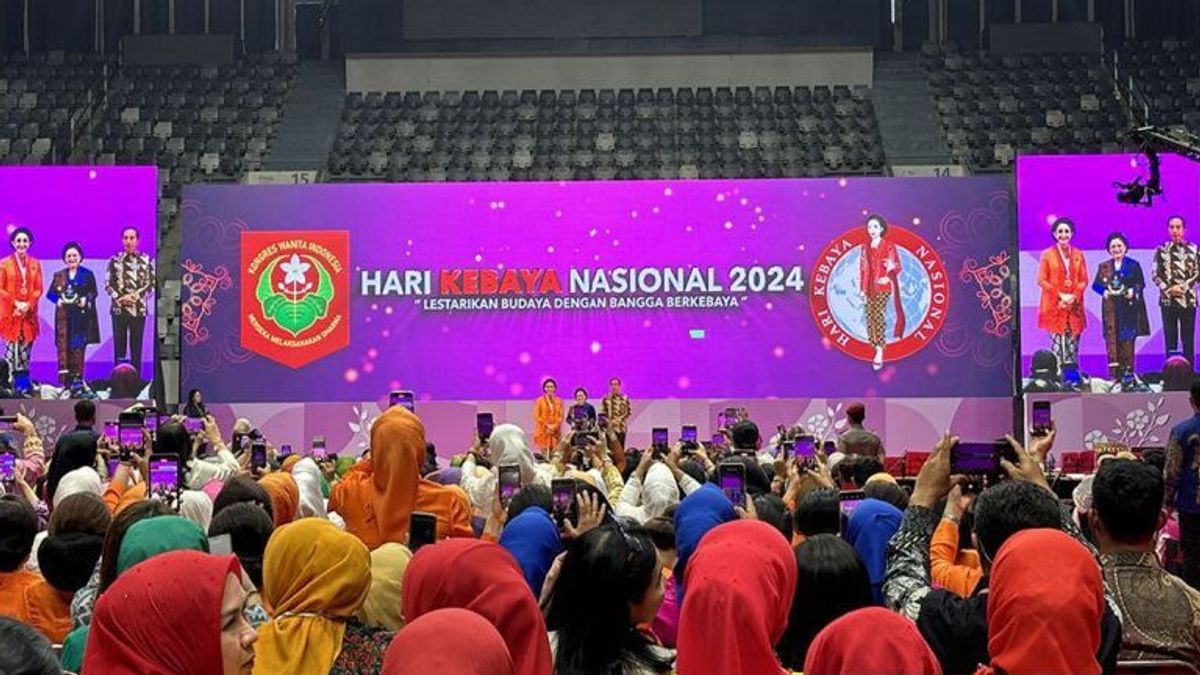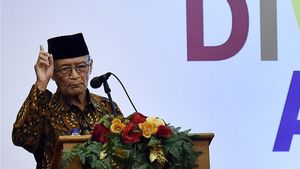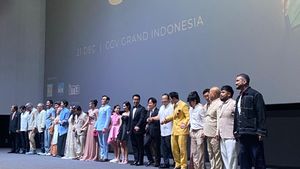JAKARTA - First Lady Iriana Joko Widodo (Jokowi) received the Ibu Bangsa award from the Indonesian Women's Congress (Kowani) at the peak of the series of National Kebaya Day events held at Istora Jakarta, Senayan, Wednesday, July 24.
The award was handed over directly by the General Chairperson of Kowani Giwo Rubianto Wiyogo to Mrs. Iriana who looked elegant wearing a blue kebaya equipped with bun makeup on her head and a batik scarve attached to her right shoulder.
The award was given to Iriana for her contribution in the campaign to support women's empowerment and improve the quality of life of Indonesian women.
After receiving the award, Mrs. Iriana took a photo with President Jokowi who was also present at the peak of National Kebaya Day.
The commemoration of National Kebaya Day was held for the first time this year after the issuance of Presidential Decree No. 19 of 2023 concerning National Kebaya Day.
The lively event became an important moment in an effort to preserve culture in Indonesia.
Carrying the theme "Lestarikan Budaya with Proudly Berkebaya", the event was attended by around nine thousand women from all regions in Indonesia.
Chairman of the Committee for the Commemoration of National Kebaya Day, Tantri Diah Kirana Dewi, said that the event is expected to encourage more women to wear kebaya.
SEE ALSO:
Tantri also emphasized that a special day for work has been set, namely "Tuesday Celebrity," which is expected to be implemented by women throughout Indonesia.
"Incidentally, we have determined at Kowani on Tuesday Berkebaya, apart from Batik Wednesday, of course, Tuesday Berkebaya, it has been outlined to set it as a day of work in Kowani. God willing, this Tuesday we will also broadcast it throughout the country to be able to every Tuesday all of the women work together," said Tantri, quoted by Antara.
On this occasion, Tantri also explained about the various types of kebaya that will be proposed in the UNESCO nomination along with four other ASEAN countries, namely the anchorage kebaya from Sumatra, the ambaru kebaya from Java, the noni kebaya from North Sulawesi, the non-existent kebaya from the East Maluku and Papua regions, to the planning kebaya.
"What dominates now is that the designed kebaya is part of a Chinese civilization that enters Indonesia," said Tantri.
The English, Chinese, Japanese, Arabic, and French versions are automatically generated by the AI. So there may still be inaccuracies in translating, please always see Indonesian as our main language. (system supported by DigitalSiber.id)















